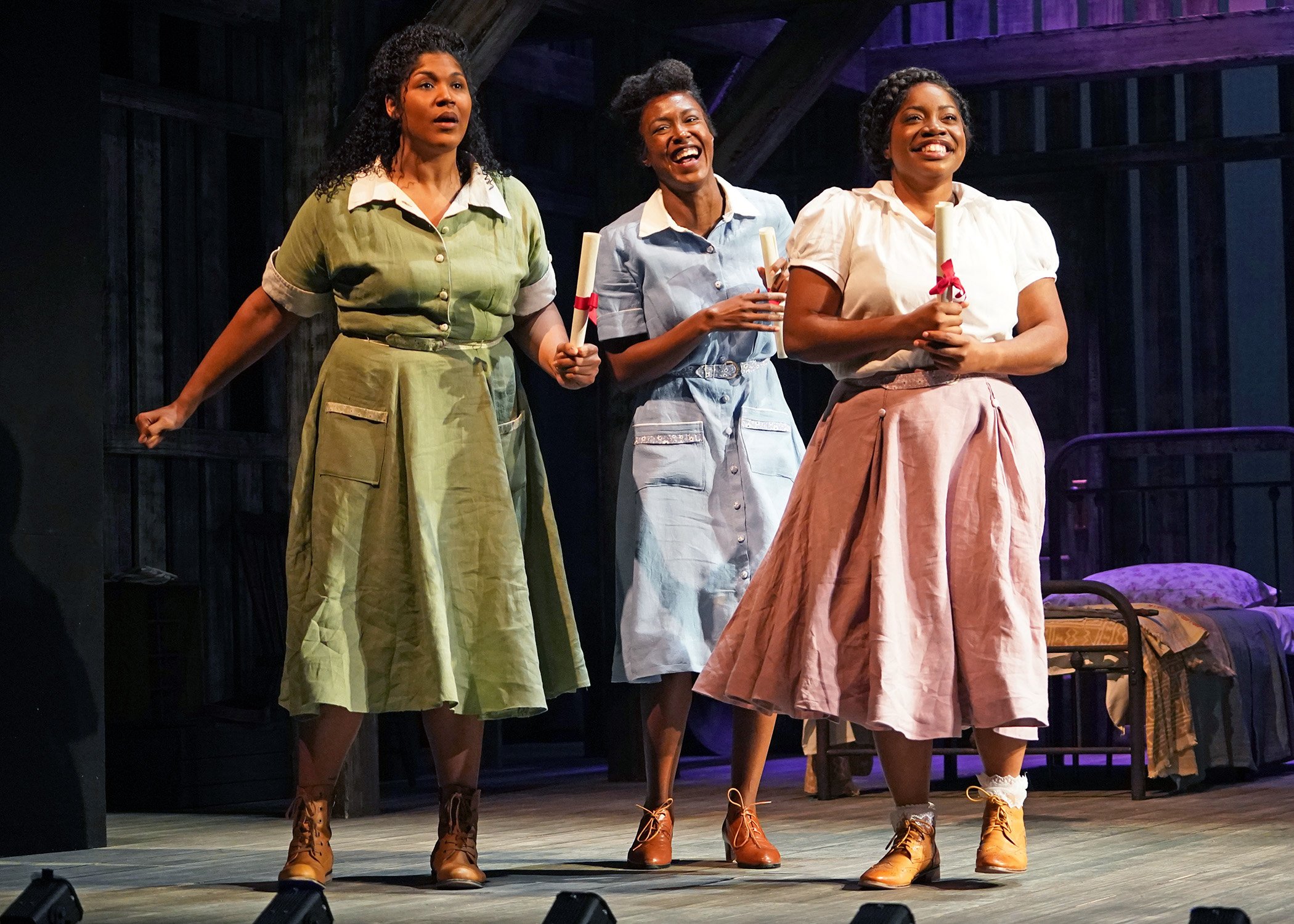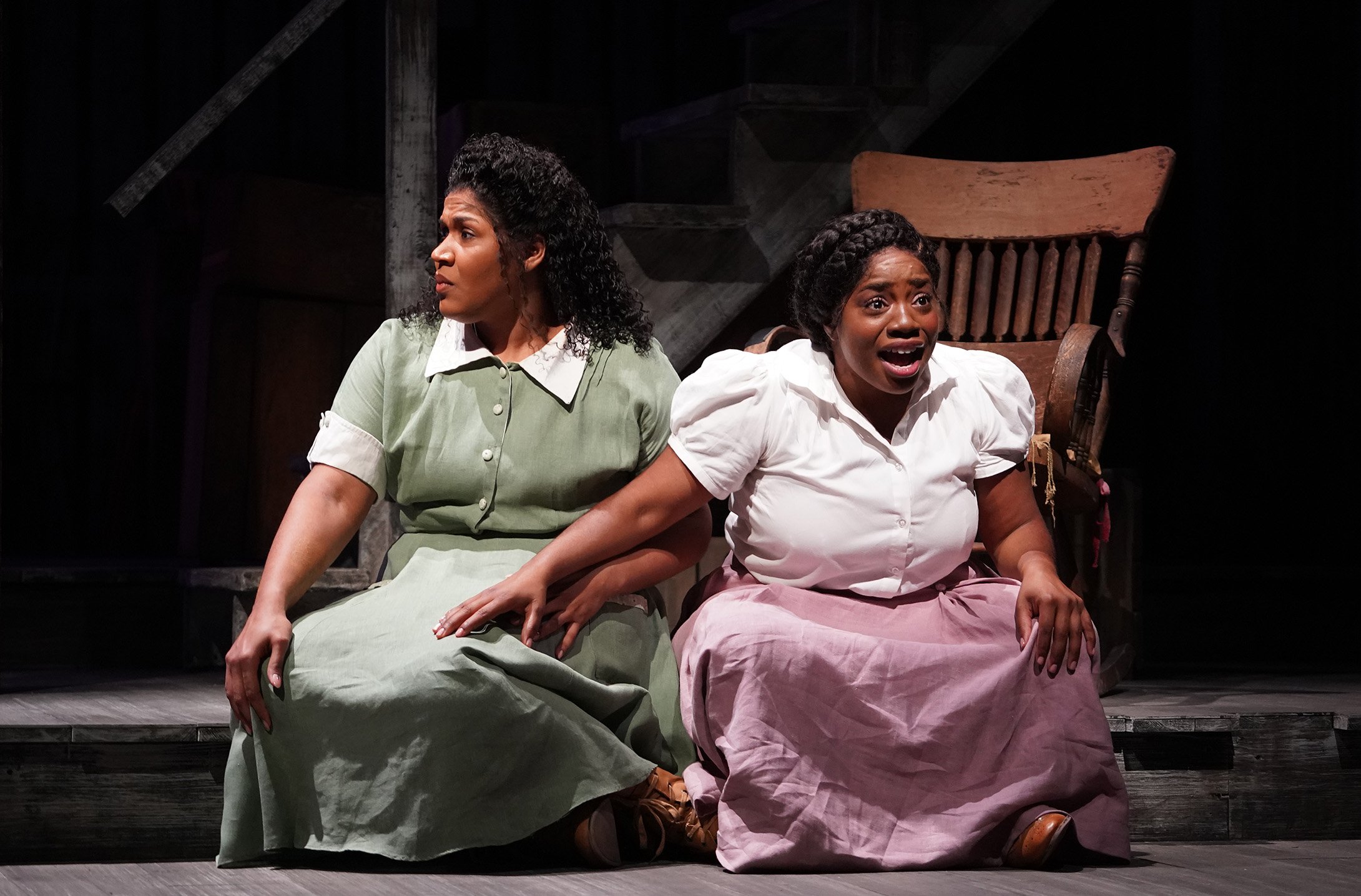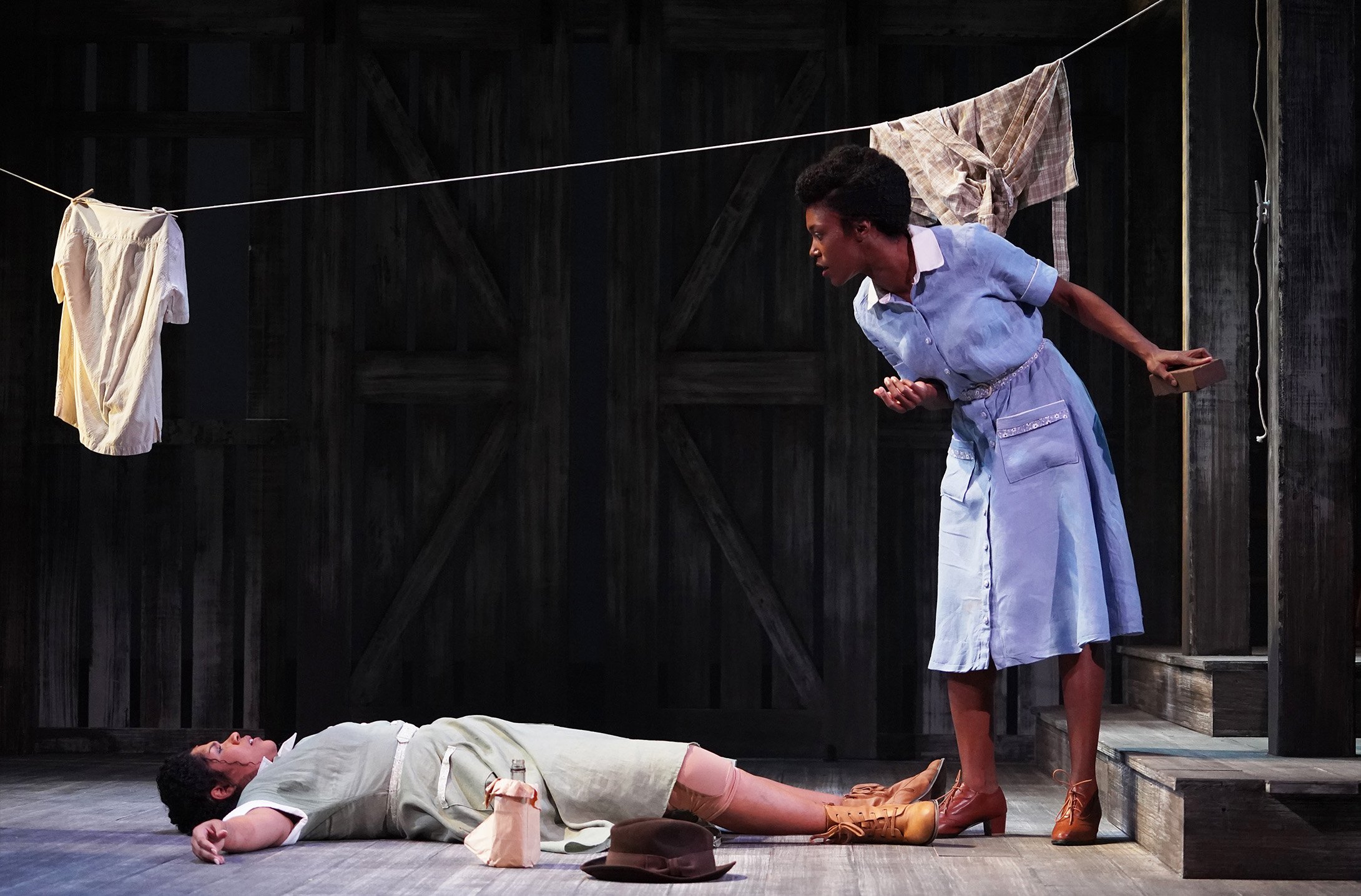Review of From the Mississippi Delta, Westport Country Playhouse
Adapting a memoir of a lifetime for the stage is a daunting task, even for a skilled playwright. Dr. Endesha Ida Mae Holland, formerly a professor of theater and American studies, had quite a life (she died in 2006) and her memoir, From the Mississippi Delta, celebrated her accomplishments and an at-times harrowing story of pluck, hope, and luck for “one who drives herself forward”—as she advertised with her chosen name Endesha. Eventually she drove herself into a PhD program at the University of Minnesota, after an awakening to her own possibilities fostered by the Civil Rights Movement and the Freedom Riders who descended upon rural Mississippi in the early 1960s. Her first play, The Second Doctor Lady, about her mother, an unschooled midwife known as Ain’t Baby, won the Lorraine Hansberry Award for Best Play in 1981
As a play, Dr. Holland’s own story relies on much narrative, rather than scenes of dialogue. Fortunately, Dr. Holland is a skilled storyteller, able to fully and forcefully exploit the verbal mannerisms and locutions of the Deep South to create a theater-piece with plenty of local color and a bracing degree of verisimilitude in how her alter-ego Phelia tells her story.
Claudia Logan as Woman One, Erin Margaret Pettigrew as Woman Three, Tameishia Peterson as Woman Two in From the Mississippi Delta at Westport Country Playhouse; photo by Carol Rosegg
On the wide and high Westport Country Playhouse stage, Jason Ardizzone-West’s set presents an imposing sense of the rural world where Phelia dwells. A staircase leads to an upper story; a cast-iron bed sits in the opposite corner; in front of the stairs is an area generally used as a porch. The fluidity of the space serves the daunting fluidity of the play as three women—Woman One (Claudia Logan), Woman Two (Tameishia Peterson), Woman Three (Erin Margaret Pettigrew), named by their order of appearance—play all the roles, at times delivering Phelia’s narration as if a Greek chorus, trading off lines and bringing to life the author’s differing voices and emotions.
In general, it works. And it works best when there is something happening on the stage for us to fix our attention on: as when Woman Three, as Ain’t Baby, mimes treatment of a difficult breech birth while the other two women alternate their amazed and breathless description of what Phelia sees, watching through the window. Other fully staged moments—with a similar indelible power—are underage Phelia’s rape at the white folks’ home where she babysits (Tameishia Peterson enacts convincingly the innocence, the outrage and the sadder but wiser outcome), and the scene, full of comic ribaldry, when Phelia, in Woman One’s account, decides to compete with a traveling salacious dancer at the fair who has all the menfolk’s attention.
Claudia Logan (Woman One), Tameishia Peterson (Woman Two) in From the Mississippi Delta, Westport Country Playhouse; photo by Carol Rosegg
A sense of oppression is always present in Phelia’s life, but the general tone is of a kind of knowing indulgence furnished by the fact that ultimately Phelia triumphs over adversity. In fact, in the play’s more meandering second act—where Civil Rights workers, and the brutal death of Ain’t Baby, and the journey to Minneapolis and hanging out in the demimonde and earning degrees and dealing with real winter cold all skim by without much in the way of scenic clarity—the tone becomes so congratulatory that we’re just supposed to sit back and admire. The graduation scene is a feast of name-dropping and paying respects, but names aren’t characters. What’s more, Claudia Logan, in particular, maintains the down-home locutions and giddy intonation of the uneducated Phelia. We get very little of the transition to the doctoral Endesha until the powerful passages quoted from a letter to Alice Walker.
There are several vignettes that serve not much purpose other than entertainment and to show off Dr. Holland’s storytelling skills—as in the story of one old lady’s obsession with her water meter and the comeuppance of one who would mistreat her. Such scenes, and particularly the highlight of the hilarious slapstick solemnity of the chief mourner at Ain’t Baby’s funeral, owe their virtues to Claudia Logan’s considerable gift for physical humor. Meanwhile, the old water meter lady and a stereotypical Southern Baptist preacher show off Erin Margaret Pettigrew’s skills at caricature.
Claudia Logan, Woman One, and Erin Margaret Pettigrew, Woman Three in From the Mississippi Delta, Westport Country Playhouse; photo by Carol Rosegg
In general, Logan enacts the comic and sassy segments, Peterson the more soulful or thoughtful segments, with Pettigrew the folksier and wiser elements, particularly stemming from Ain’t Baby’s adages and her distrust of certain changes that the Civil Rights workers bring about. Together the three women create a compelling contrapuntal effect that keeps the story moving and at its best gives the telling the feel of a collective event.
Sprawling, with a great sense of individual voice and of a lived-in time and place, what From the Mississippi Delta captures best is one woman’s own awe at the life she lived, with all its surprises and shocks and success. It is vividly and vibrantly recreated on the Westport Country Playhouse stage as directed by Goldie E. Patrick and her strong cast of performers, Claudia Logan, Tameishia Peterson, Erin Margaret Pettigrew.
Claudia Logan (Woman One), Erin Margaret Pettigrew (Woman Three) in From the Mississippi Delta at Westport Country Playhouse; photo by Carol Rosegg
From the Mississippi Delta
By Dr. Endesha Ida Mae Holland
Directed by Goldie E. Patrick
Scenic Design: Jason Ardizzone-West; Costume Design: Heidi Hanson; Lighting Design: John D. Alexander; Composer/Music Director: Michael Keck; Dialect Coach: Dawn-Elin Fraser; Intimacy Coach: Ann C. James; Wig Design: Nikiya Mathis; Props Supervisor: Sean Sanford; Production Stage Manager: Melissa Sparks; Assistant Stage Manager: Tré Wheeler
Cast:
Claudia Logan, Tameishia Peterson, Erin Margaret Pettigrew
Westport Country Playhouse
October 18-30, 2022



